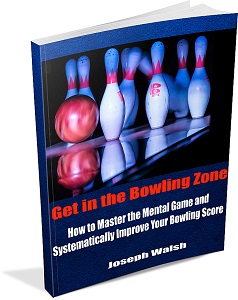
If you’re a serious bowler who has experienced some success in league play and local tournaments, it’s natural to start to dream even bigger.
Although going professional in bowling is a lot more difficult than some make it out to be, it is still a dream worth fighting for.
But it’s not always necessary to commit to a professional bowling lifestyle to get a taste of the pros. I’m talking about entering a pro tournament as an amateur, which is possible in many cases.
Different Ways to Bowl PBA Events as an Amateur
Depending on the tournament, there can be more than one potential way to secure a spot without being a full professional.
At a basic level, these options include paying an entry fee or competing through a qualifying event.
Additionally, in some cases, the field will open up to amateurs if there are still spots open after all the professionals who wish to play have entered.
Within these options, the exact process varies depending on the tournament. Let’s take a look at how things work within the parameters of the PBA (Professional Bowlers Association).
The PBA confirms that amateurs may be elegible to compete in multiple competitions, including “selected PBA Regional Tour, Senior Regional Tour and PBA50 Tour tournaments.”
In some tournaments, a set number of spots (for example, 6) may be set aside for high finishers in a Pro Tour Qualifier (PTQ) round.
Outside of the PBA, other bowling organizing bodies will have other requirements. In some cases there may be a mix of professionals and amateurs, and in some cases it may be the pros who are the group that is limited in number.
How Good Do Amateurs Need to Be to Bowl in a Pro Tournament?
After the previous section about amateur eligibility, we need to issue a caveat to those who may be thinking they can shell out a bit of money and claim a spot alongside Jason Belmonte at a major tournament.
To dig deeper, we need to break down what we mean when we say “amateur.” If we return to the PBA examples, then you’ll see that amateurs must meet the minimum average requirement in order to qualify to compete through whatever available channels.
So what is the scoring requirement?
Amateur bowlers wishing to qualify for a PBA event must have a 200 average (or a 190 average in a USBC certified Sport League) for 21 games within the last calendar year.
Those bowlers will need to be prepared to show proof of that average, either through online verification on the USBC website or a letter from the league. (Source)
In addition, any non PBA members competing in a tournament must adhere to the code of conduct and other standards for tour bowlers.
So when we’re talking about amateurs bowling in pro tournaments, it’s not usually going to be a novice or beginner bowlers. In most cases these are bowlers who are close to if not already at the level where they could be bowling professionally.
The distinction, then, becomes which bowlers are officially members of the PBA and which aren’t. Currently there are roughly 3,000 or so bowlers who are registered as members of the PBA. Because of this, the share of amateurs participating in tournaments can be higher than one might guess, and it is a more prevalent practice than in other sports like golf.
Those amateur bowlers just haven’t chosen to “go pro” for a variety or reasons which will often be the fact that they work another job and bowl on the side. In addition, with pro bowling salaries at a lower level than almost any other comparable professional sport, there is less incentive for high average bowlers to try to join the PBA. When tournament prizes aren’t at a high enough level, the costs incurred by aspiring amateurs, from entry fees to traveling, tend to have an effect that deters them from striving to compete.
If you are a more casual league bowler who does still want a crack at bowling alongside major pros, then a better path would be finding and competing in a Pro-Am (professional-amateur) event. Amateurs are typically given a handicap and there are some other specific rules that ensure a level playing field.
In conclusion, because of all of these facts, amateur bowlers competing in pro events is significant, but it’s not necessarily the type of amateur you would first picture. Amateurs have won major bowling tournaments in the past and it hasn’t always been a huge underdog story; on the other hand, that bowler just hadn’t gone pro for whatever reason. But in other cases, more upstart amateurs have competed with and defeated more experienced professionals, so if this is your dream as a bowler, keep on fighting for it! If you’ve entered a tournament as an amateur, let us know how it went!


Leave a Reply